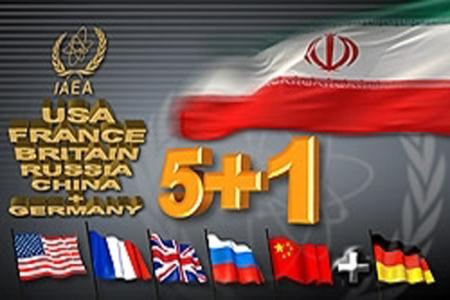ID :
328951
Sat, 05/17/2014 - 09:17
Auther :
Shortlink :
https://oananews.org//node/328951
The shortlink copeid
Official: No Progress In Vienna 4 Talks, Next Round In June

Vienna, May 17, IRNA – An official close to the Iranian nuclear negotiation team said at end of four-day Vienna 4 nuclear talks between Iran and 6 world powers that no progress was achieved in this round, as none was expected, adding that next round of talks will be in June.
ˈThere was no progress, as there were differences of opinion on every issue which was discussed that is quite natural,ˈ he said, adding that no one should expect tangible progress in this tough phase of the negotiations,ˈ he said.
ˈThese talks will continue in June when Iran will have at least two rounds of talks with the Group 5 plus one (the UN Security Council big 5 and Germany), but their exact dates are not clear yet as all involved sides must confirm them before they are declared,ˈ he said, on condition of anonymity.
He said that during the course of the past four days very intensive and detailed negotiations were held and although no progress was achieved, that is not an unprecedented phenomenon because in Geneva 2 talks, too, the negotiations ended amid a very tense atmosphere, while in Geneva 3 the two sides reached compromise.
The close source to the Iranian negotiation team emphasized that drafting the text of the final agreement is not possible so long as the entire differences of opinion between the two sides will be fully resolved.
ˈThe stands of the Islamic Republic of Iran have remained unchanged from the beginning to this point aimed at preserving the peopleˈs rights and observing the red lines of the country, and there will be no compromise on such cases,ˈ he said.
The official also attributed the lack of success in achieving tangible results in this round of talks to excessive demands of the western powers.
ˈSo long as the viewpoints of the other side will not be based on realities achieving compromise with them will not be possible,ˈ said the close official to the Iranian team of nuclear negotiators.
Until recently the prospects for a comprehensive accord to Iran’s peaceful nuclear program in exchange for relief from sanctions still seemed wishful. Some big obstacles must still be overcome, but the sense of urgency and the pragmatic flexibility (particularly on some knotty technical issues) being shown by Iran’s negotiators, led by Foreign Minister Javad Zarif had boosted hopes.
Iran is sticking to the undertakings it gave last November under the terms of an interim agreement that provided it with respite from some less painful sanctions. Iran has stopped producing 20%-enriched uranium, and has converted half its stockpile to low-enriched uranium (LEU), concentrated to 5%; by the end of July the other half will be turned into oxide.
After a series of detailed technical discussions, some compromises leading to a long-term deal may be close. The Iranians have offered to redesign the research reactor at Arak, which was due to go online this year.
They propose to have it fuelled with LEU rather than natural uranium, which would reduce its potential plutonium output by 80%. That may still not be enough if western experts think the redesign could be easily reversed. Much will depend on how the reactor’s core is modified.
Similarly, progress has been made over an enrichment facility at Fordow, which is buried deep under a mountain and is thus invulnerable to aerial attacks. Rather than agree to have Fordow permanently shut down, the Iranians are offering to turn it into a small research-and-development site, moving the centrifuges from there to be stored at Natanz, Iran’s main enrichment center.
Besides, the International Atomic Energy Agency (IAEA), the UN’s nuclear watchdog, has been pleasantly surprised by the Iranians’ willingness to allow much more intrusive monitoring than before, including signing up to the Additional Protocol of the Non-Proliferation Treaty (NPT).
For all those positive moves on Iranˈs side, the western powers have rather than coming up with proportionate compromises and easing sanctions accordingly kept on demanding more and more irrational demands, such as limiting the Iranian missile capability, which is quite irrelevant with the nuclear issue./end





